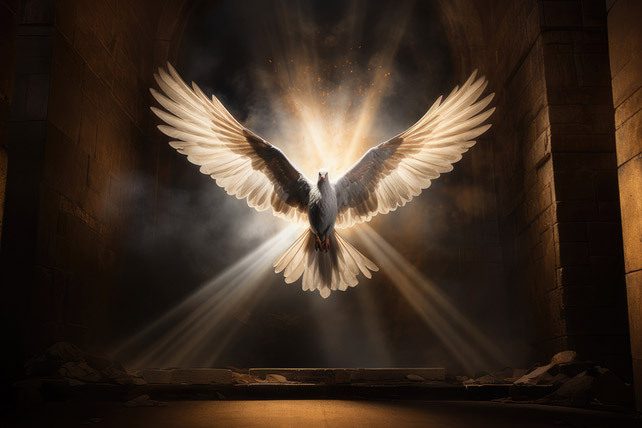Note from Dr. Ed Stetzer: Although I am far behind on my next book, I am working on a book AFTER that one about about the change in the church from the 1980s forward. One of the more fascinating shifts is that spiritual gifts, their discovery and deployment, became a mainstream idea. I asked my friend Gary McIntosh about it at my old blog. Well, now Gary and I serve together at the Talbot School of Theology, and I thought I’d share it here!
A while ago, I received an email from Ed Stetzer asking if I knew when spiritual gifts inventories first became prevalent. I gave him a quick reflection based on what I remembered at that time, but his question created a curiosity that sent me on a longer investigation. While this is certainly not the final word on the question, it may serve as a beginning point for other researchers. Here is what I have discovered.
Brief History
The doctrine of spiritual gifts, as we think of it today, is of relatively recent interest. Historically, while the Bible contains doctrines, they were not handed to the church in a systematic form. Rather, over its 2,000 plus years of history, the church progressively discovered and developed doctrines.
While Christians have practiced spiritual gifts from the beginning of the apostolic era, there was not much written about them during the first 600 years of church history. Biblical teaching from those early church years shows that the existence of spiritual gifts was recognized. However, the statements made about them in that period are brief.
During the one thousand years of the Medieval Period (590-1517), the doctrine of the Holy Spirit and spiritual gifts was essentially ignored. Doctrines like the atonement received the major study, which primarily resulted in preparation for what became known as the Protestant Reformation.
As the Protestant Reformation (1517-1648) took hold, Martin Luther and John Calvin vigorously defended the doctrine of the deity of the Holy Spirit. Both commented on the existence of spiritual gifts, particularly as they wrote commentaries on the classic spiritual gifts passages found in Romans and 1 Corinthians. Yet the reformers’ reaction against the doctrines of the Roman Catholic Church led them to focus on justification, while giving less attention to other areas (e.g., sanctification).
The period following the Protestant Reformation (1648-1900) was one of profound changes—both positive and negative—among Christians and theologians. On the negative side was the expanding interest in rationalism, deism, and evolution. On the positive side was the move toward healthy piety, evangelism, and missions. The names of Nikolaus von Zinzendorf, Charles Wesley, George Whitefield, William Carey, and others are well known today. It was during this time that John Owen produced what may be the first full systematic presentation of the person and work of the Holy Spirit in A Discourse Concerning the Holy Spirit.
During this time, rationalist religious writers interpreted spiritual gifts as just the natural talents that a person brought to the Christian life. To those looking at the supernatural from a naturalistic perspective, spiritual gifts were nothing but natural abilities with a touch of spiritual attitude. Conservative biblical scholars and writers during this period focused on defending the work of the Holy Spirit in salvation, rather than the Holy Spirit’s work in the Christian life.
The 20th century (1900-2000) was a dynamic time for the development of doctrine, as long-neglected areas of theology (especially those of the Holy Spirit, ecclesiology, missiology, and eschatology) were brought forth for discussion and debate. What drove the interest in spiritual gifts, however, was the new Pentecostal movement.
The last years of the nineteenth century saw traces of what we now call the Pentecostal movement but the Pentecostal movement burst forth with great power in 1906. The claim of the Pentecostals to the mighty outpouring of the Holy Spirit, especially as evidenced in miraculous gifts, started a fresh investigation into the doctrine of spiritual gifts.
Books and articles flew off the printing presses during the early twentieth century to either defend or attack the use of miraculous gifts. World War II and the rebuilding years in the decade following slowed the research on the doctrine of spiritual gifts, but by the 1960s fresh interest was evident. The early 1970s found renewed focus on the proper use and practice of spiritual gifts for personal ministry.
Spiritual Gifts Inventories
In 1967, Grant Howard, a student at Dallas Theological Seminary, completed a Th.D. dissertation on the subject of “The Doctrine of Permanent Spiritual Gifts.”(1) He later became a professor of practical theology at Western Conservative Baptist Seminary in Portland, Oregon, where he teamed with Earl Radmacher, then president of Western, and Loren Fisher, professor of Christian Education, in continued study of the practical use and application of spiritual gifts in the local church.
Radmacher was a 1962 graduate of Dallas Theological Seminary, where he completed a Th.D. dissertation on “The Nature of the Church.”(2) He was a specialist in ecclesiology and was interested in the doctrine of spiritual gifts for local church ministry.
Early in 1970-1971, Radmacher started leading seminars and conferences throughout the United States on the topic of spiritual gifts, which became quite popular.(3) Then, around 1972-1973, an administrator at Western developed a spiritual gifts inventory that he based closely on the Myers-Briggs Type Indicator. Evidently, it was too close to the Myers-Briggs and, after that discovery, the inventory was never used. This appears to be the first documented attempt at developing a spiritual gifts inventory.

